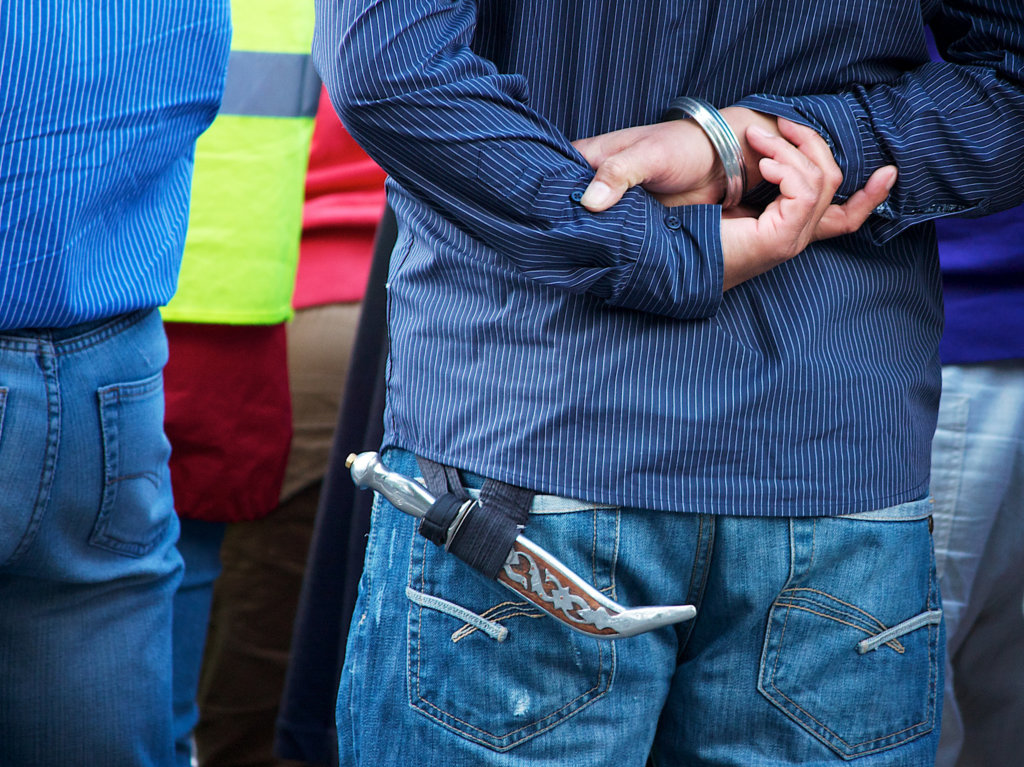The top court in Quebec, Canada, upheld the right of the national assembly to prohibit people from entering the legislature with a kirpan.
Balpreet Singh and Harminder Kaur, two members of the World Sikh Organisation, had challenged the motion adopted by the national assembly in February 2011, which said that the security personnel had the right to refuse entry to anyone who did not want to part with their religious symbol, CTV news reported. Kirpan is one of the five articles of Sikh faith that devout men and women are required to wear at all times.
Quebec Court of Appeal Justice Patrick Healy reinstated a lower-court ruling in his decision that said the national assembly has the right to establish its own rules in accordance with parliamentary privilege. Superior Court Justice Pierre Journet also asserted the authority of the assembly to “exclude kirpans from its precincts as an assertion of parliamentary privilege over the exclusion of strangers.”
In his ruling on Feb. 19, Healy referred to a Supreme Court decision that said a provincial legislature could invoke the privilege to exclude strangers. This was to prevent journalists from filming in the assembly premises. “The Supreme Court confirmed that these general principles formed part of Canadian constitutional law and held specifically that the privilege to exclude strangers is entrenched in the Canadian Constitution,” Healy wrote on behalf of a three-member panel.
“I make no comment whether the assembly’s exercise of the privilege to exclude the kirpan is a wise decision. I say only that it is a legal exercise of this category of privilege. If the appellants wish to challenge it, the proper forum is the assembly itself,” Healy said, dismissing the arguments of Singh and Kaur.
Sing and Kaur, who were going to the legislature to submit a brief, did not want to deposit their kirpans in January 2011. They were part of a World Sikh Organisation delegation going for a presentation on Bill 94, which would have denied essential government services and public employment to individuals who wear facial coverings.
Singh and Kaur were excluded from the presentation. They argued that the motion to refuse entry to anyone who did not want to part with their religious symbol was unconstitutional. They later amended their position to say it was legal but non-binding.
Singh has not ruled out an appeal against the latest order. “We haven’t reached a decision. Obviously, the judgment just came out yesterday (Feb. 19) and we received it late in the day yesterday, so we’re still reviewing it. But an appeal is certainly one of our options and we’re considering it very seriously,” he was quoted as saying by the media.
The World Sikh Organisation expressed its disappointment with the court’s decision. “While we are disappointed by the Quebec Court of Appeal’s decision, we aren’t surprised by it. Even the Multani case, which secured the right of Sikhs to wear the kirpan in Canada, was not successful at the Quebec Court of Appeal and had to be argued at the Supreme Court of Canada,” organization president Mukhbir Singh was quoted as saying by Voiceonline website.
He added: “In Canada, the Quebec National Assembly and prisons are the only two places with absolute prohibitions on the kirpan. It is unfortunate that the issue of the kirpan has been highly politicized in Quebec and is no longer about human rights and security but about identity politics. We are reviewing the Quebec Court of Appeal’s decision and an appeal to the Supreme Court is certainly something we are considering.”
Julius Grey, one of the lawyers who represented them, says the decision is highly “appealable.”
